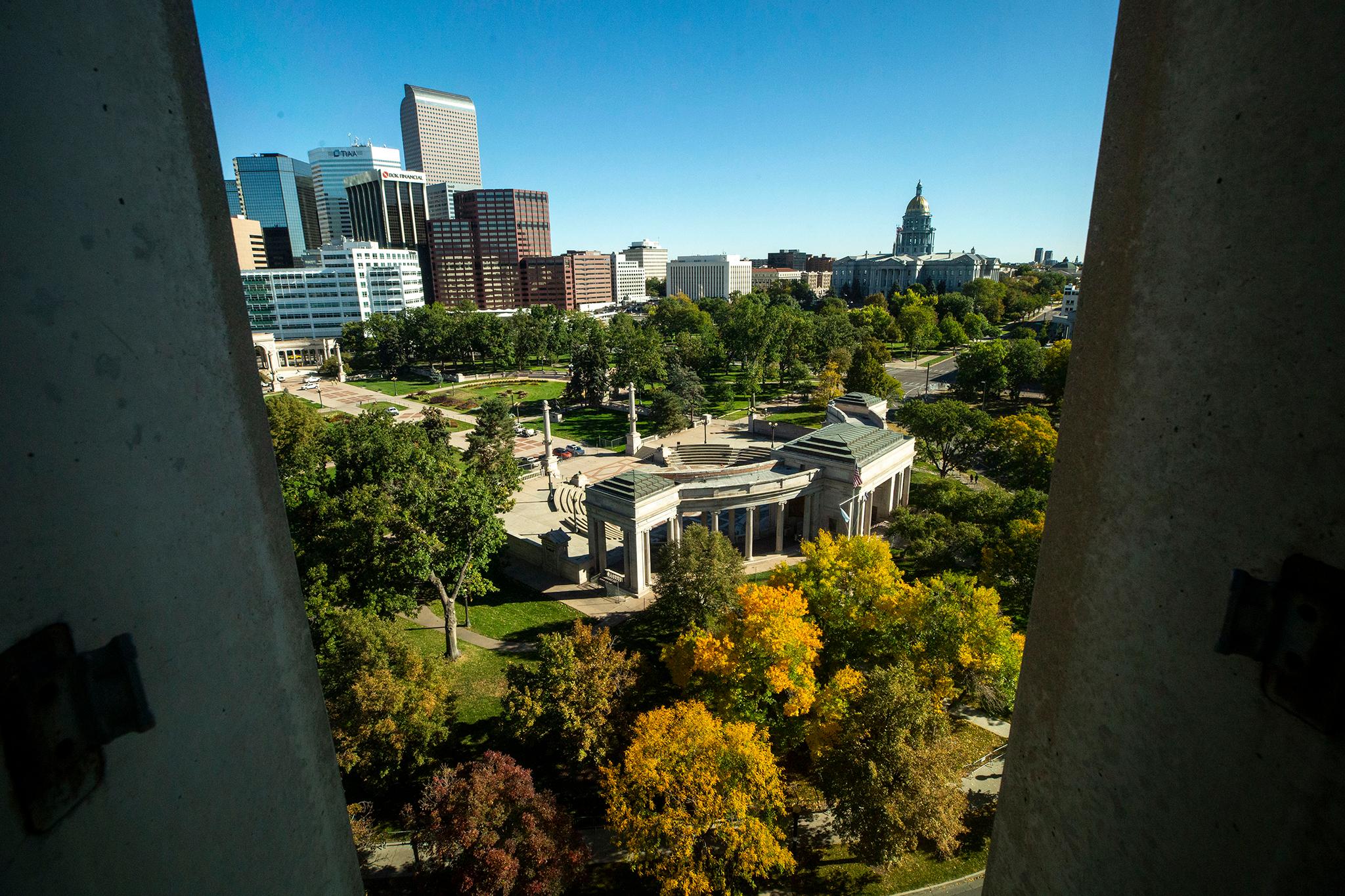Work could soon begin to bring a monument to Civic Center Park honoring the efforts of the "Gang of 19," a disability rights activists group in Denver who drew national attention to their fight for accessibility in 1978.
Denver City Council will vote Monday on a $2.3 million grant to support research and community engagement for sculpture projects at Civic Center Park, including the one honoring the Gang of 19.
The money will also be used to perform a "monument audit" of statues that were toppled or preemptively removed during protests in 2020.
"I don't think a lot of people understand that Denver played a big part in breaking down the barriers of transportation in the United States," said Jaime Lewis, a transportation advocate with Colorado Cross-Disability Coalition. "I think the general public needs to know that. To have something a little larger, more demonstrative, like art, would draw people in."
The construction of a commemorative project would honor the lives of Rev. Wade Blank and the "Gang of 19," a group of disability rights activists who stopped two RTD buses on the intersection of Colfax Avenue and Broadway chanting "We will ride!" Members of Denver's Atlantis Community organized the protest over 45 years ago. Today it's considered the impetus for the landmark Americans with Disabilities Act in 1990, and a turning point in making RTD the first metropolitan transportation agency in the country to provide wheelchair-accessible service on all local buses.
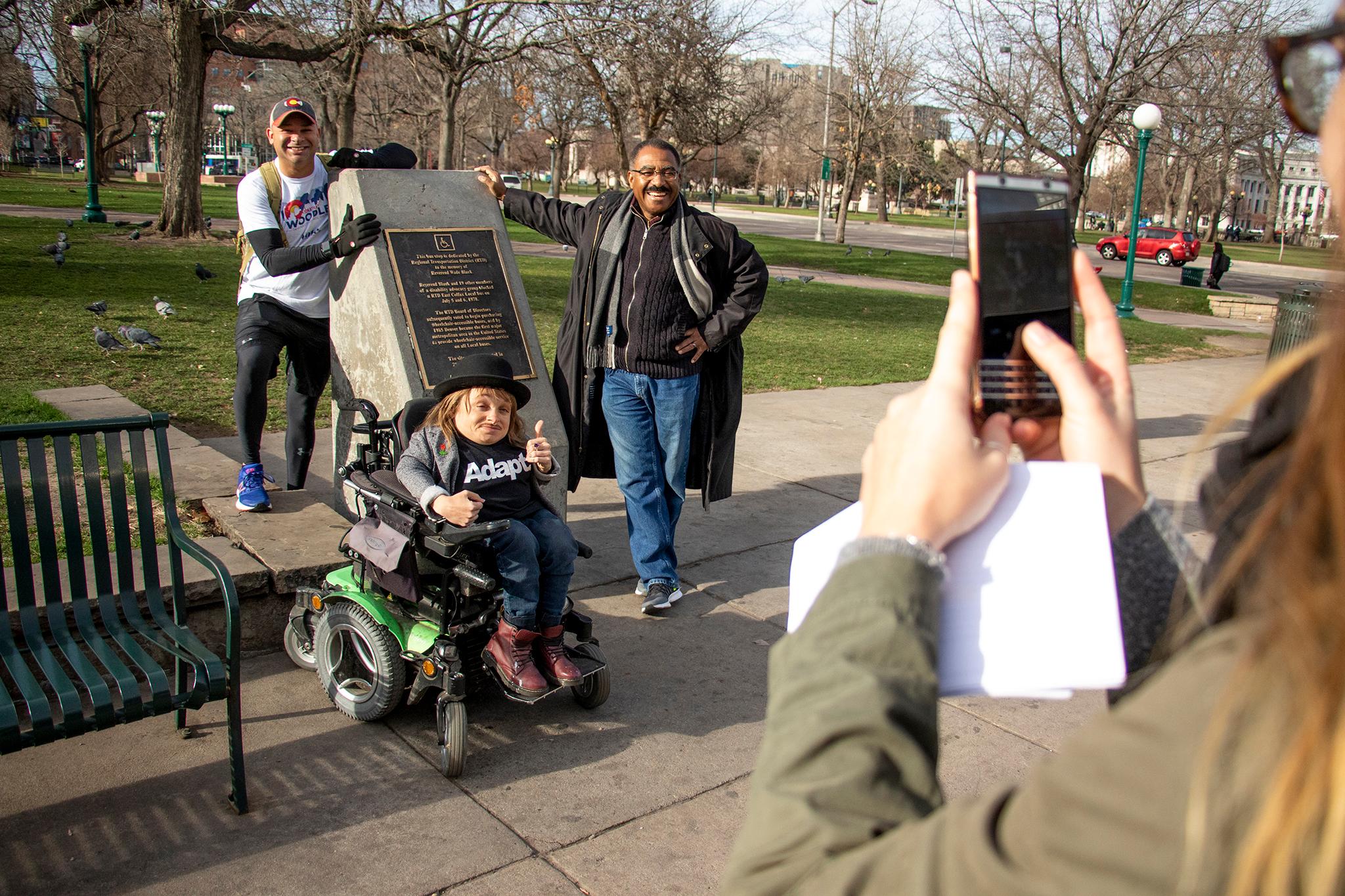
A "Gang of 19" memorial is currently on display on Colfax Avenue.
A plaque rededication ceremony was also held earlier this year inside Civic Center Station in honor of Rev. Wade Blank. Now the city will begin carrying out a project to create a much larger installation of the historic day. It is also part of the city's plans to improve accessibility at the Greek Theatre and South Plaza in the years to come.
"It's Civic Center Park, the park of the people," said Councilmember Chris Hinds. "When the people before all of us built the Greek Amphitheatre, disability rights and disability access [were] not part of the conversation. But that's part of today's conversation so we're being intentional about [making] it accessible for everyone."
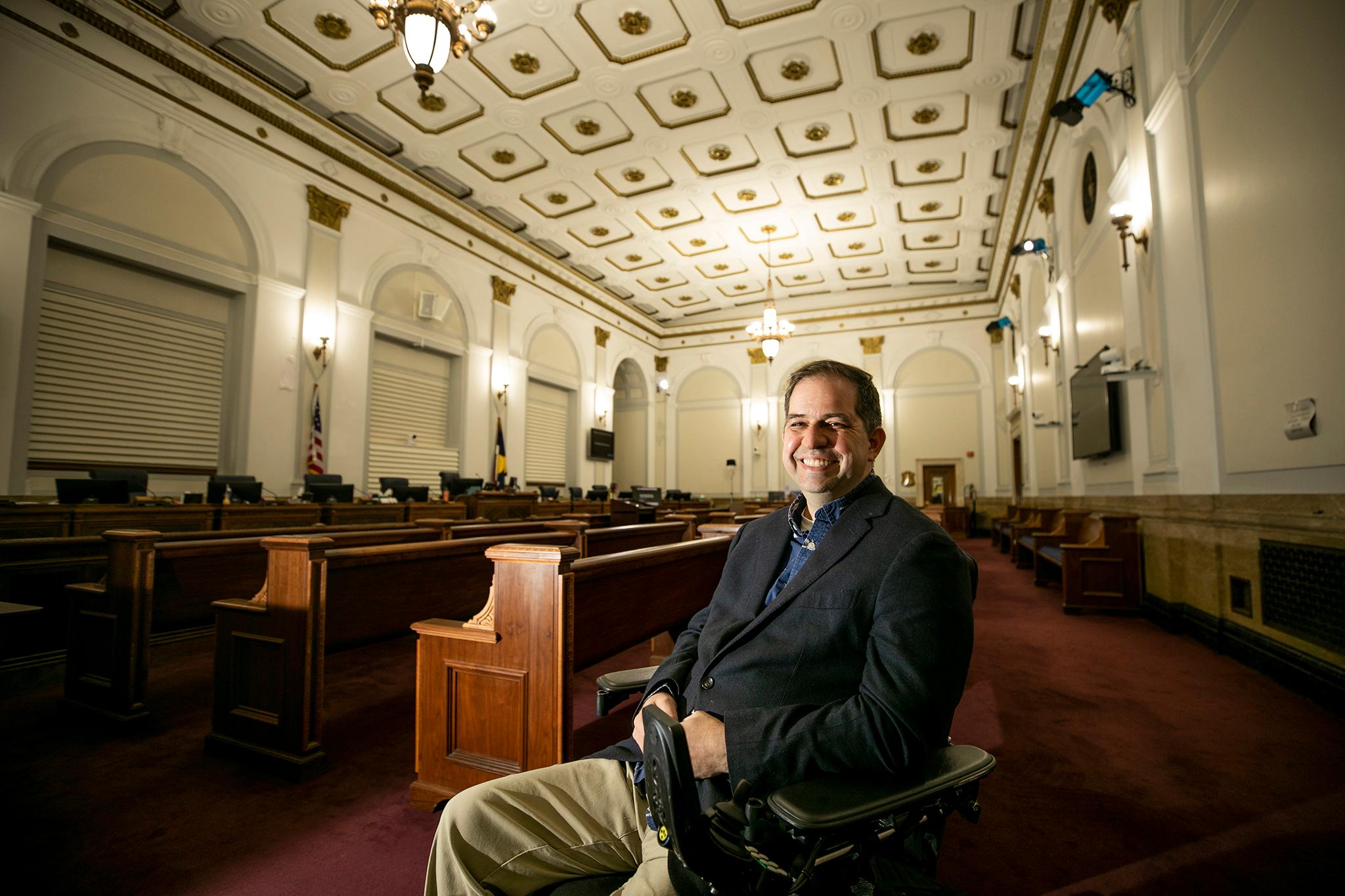
Hinds represents District 10, which includes Civic Center Park. He's also the first elected official in Denver's history to identify as a member of the disability community. On Saturday, Hinds plans to observe the 15th anniversary of his 2008 bike crash that led to a spinal cord injury and caused him to use a wheelchair.
"I've been a disability advocate for 15 years," Hinds said. "What I see is the impact of this is that we are being more intentional. Recognizing Denver's impact [on] positive movement and awareness for the disability community is great. With the Americans with Disabilities Act, making all mass transit systems accessible, it all started right here in Denver."
The funds come from the Andrew W. Mellon Foundation, a private foundation from New York City that has committed to giving $250 million by 2025 to help fund public projects that accurately represent the stories of all Americans across the nation. This year, the foundation chose to fund nine municipality projects. That includes one in Denver that will be carried out over the next three years.
Nearly $2 million will be entrusted to Denver Parks & Recreation, who will be responsible for carrying out the "Gang of 19" commemoration project.
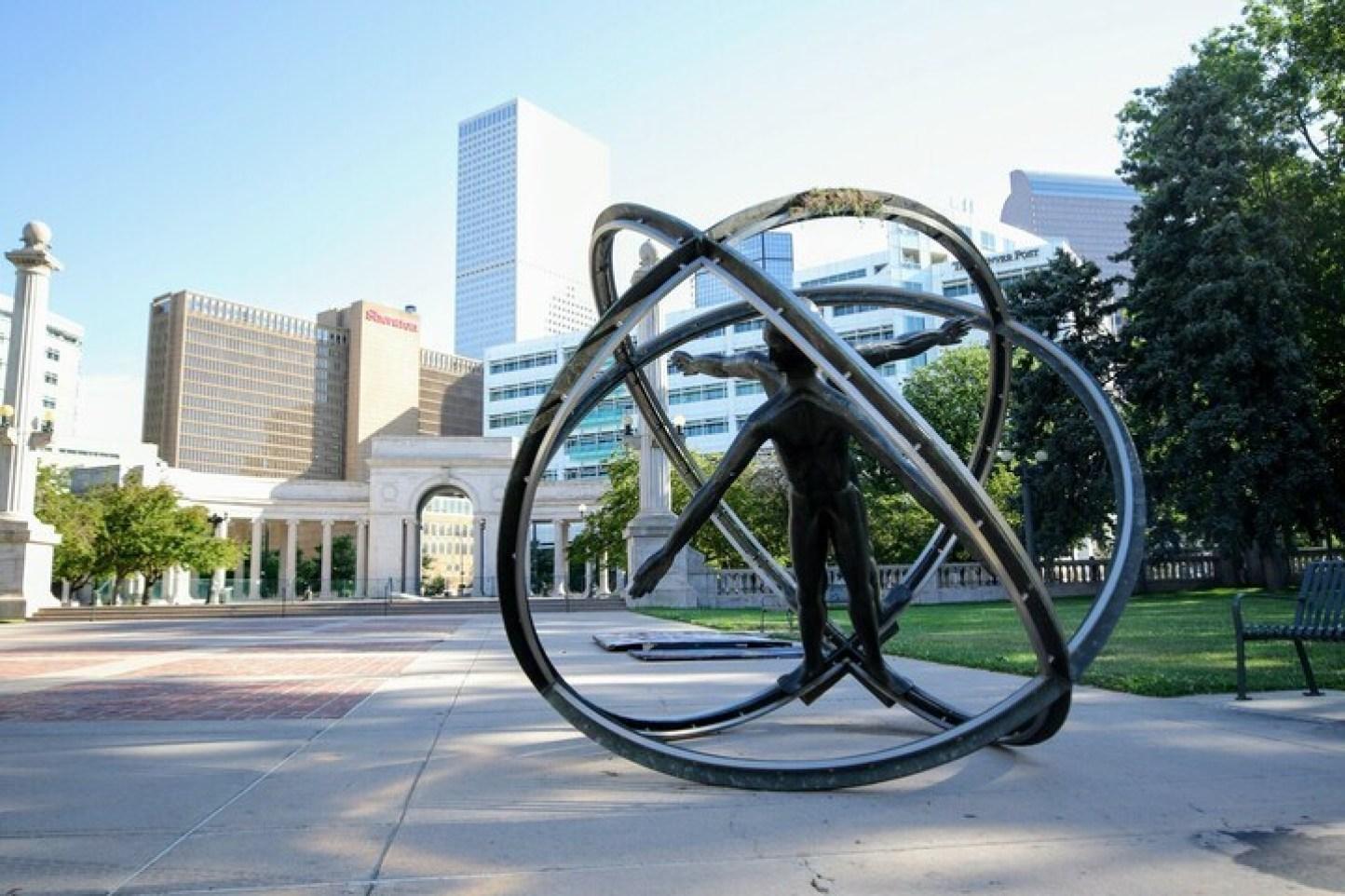
The remaining $500k would be entrusted to Denver Arts & Venues to carry out a 'monument audit' of statues that were heavily contested during protests in 2020.
"The idea of this monument audit is to have a community engagement process and say, 'What do we want to do with these works of art that have controversy in our time today?'" Hinds said.
William F. Joseph's "Christopher Columbus" statue was installed in 1970 and toppled in 2020 in protest of the explorer's genocidal legacy. According to Hinds, who met with the sculptor's son, the statue wasn't meant to depict Columbus but rather a Venetian man. Originally titled, "Man of All Nations," it was the sculptures' patrons who were also Italian immigrants, Alfred and Anne Adamo, who named it after Columbus.
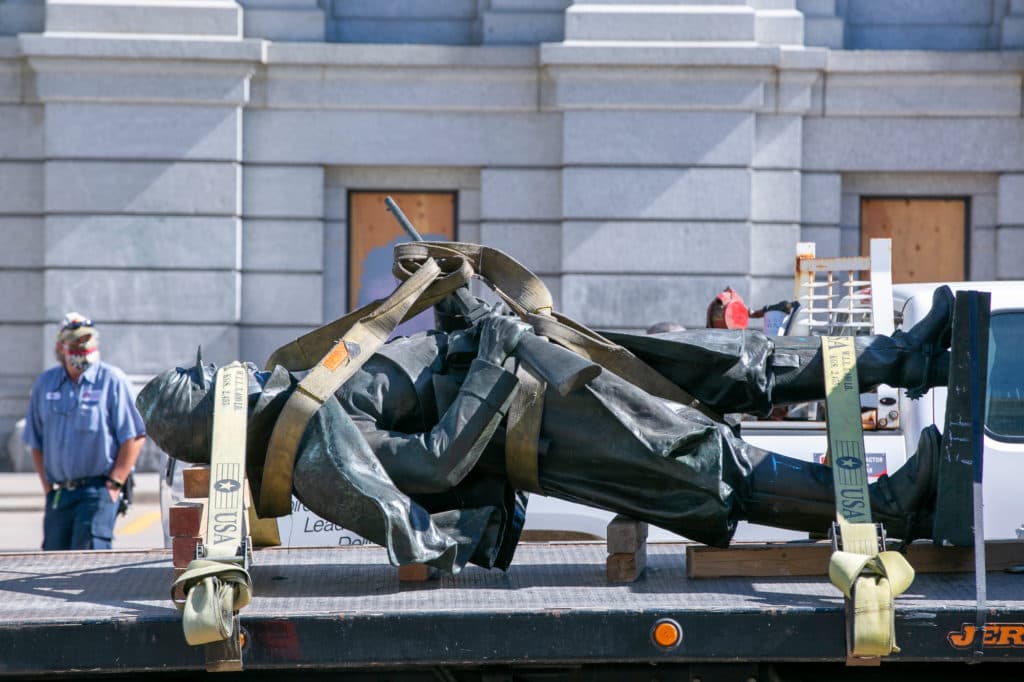
The second statue in contention is Frederick MacMonnies' 1911 "Pioneer Monument" which had a figure of Kit Carson at the top. City crews were able to preemptively remove the figure before protesters got to it. Leaders of the American Indian Movement had pushed for the statues removal for decades, citing the American frontiersman, trapper and soldier's history as, "an agent of the displacement and decimation of the native peoples of the West." The monument depicts the conquest of white settlers in the West. Its original design involved a Native American man at the top, but after Denverites took offense to an "Indian chief" at the monument's highest point, the sculptor traveled back from Paris to install Kit Carson instead.
Both statues have been held in storage awaiting a decision on their permanent homes.
The city is tasked with coordinating a stakeholder process that engages the community regarding what should be done about statues that are considered heavily controversial to some groups.

